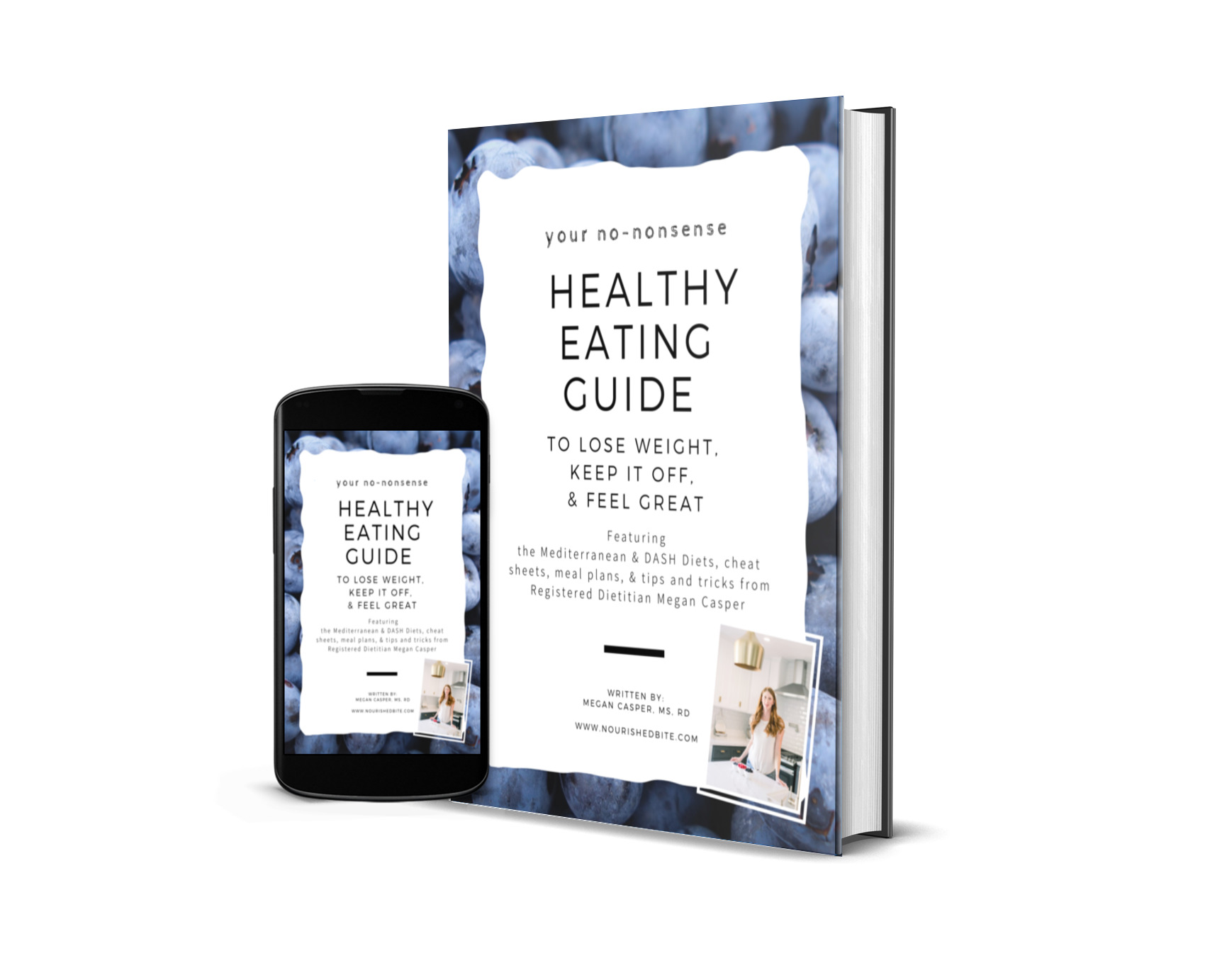5 Ways to Stay Healthy When You're Stressed
/Whether it’s a crazy time at work, or a once in a hundred years catastrophic pandemic, stress is impossible to avoid. Stress can throw us off course each day, and wreak havoc on our health. So how can you stay healthy when you’re stressed?
When you’re under pressure your stress hormones, like cortisol, remain elevated and keep you on high alert. Over time this can be draining. You’ve heard of the flight or fight response. In this modern, fast-paced world, our bodies get that boost of hormones that was meant to help us punch a lion - but it’s on all of the time. Over time this can wear on you and lead to depression, weight gain, disease and more.
But if stress is just a part of life, what can you do to stay healthy? Don’t feel you have to choose between stress and health. Here are a few ways to treat your body right and get you through this time as healthy as can be.
Eat Well, and Do the Best you Can
While it’s common to grab high-fat, high calorie foods when stressed, and I totally get the desire to stress eat, junk food actually makes you grumpier, more tired, and more stressed. Food affects your stress levels in a few ways. First, some foods help boost your serotonin, a hormone that is calming. Other foods help reduce anxiety causing hormones, like cortisol and adrenaline. Food also can be used to soothe and to fuel.
Carbs: Whole grain carbs help boost serotonin. Look for whole grain breads, pastas, and cereals. Read labels on whole grain products to ensure they say 100% whole grain. While grabbing something sugary does give you a quick boost, eating whole grain foods, like oatmeal instead of a donut, will give you energy longer which can help you face the day with a little more pep.
Fats: Healthy fats, like those found in avocados, nuts, fatty fish and eggs, also help your body boost the happy and relaxed hormones. Omega-3s, which are found in fish, walnuts, edamame, chia seeds and more, are especially helpful for boosting your mood.
Probiotics: Studies have found that keeping the bacteria in your GI tract, your microbiome, happy can boost feelings of calm too. To boost your gut health, reach for probiotics and foods that are high in fiber (for the little happy germs to munch on.)
Vitamin C: You can also look for foods high in vitamin C, like oranges, kiwis and mangos, to help boost your mood. Some studies have found vitamin C can help lower the body’s response to stress.
As a rule of thumb, try to eat well at least 80% of the time even during stressful times. That means swapping in whole grains for processed grains, eating lean meats and healthy fats, and snacking well.
Look for these little swaps throughout the day - things that are easy, tasty, and don’t hurt your brain with more thinking.
Examples:
Oatmeal for breakfast is fast and easy, plus it’s a whole grain. Add some fruit, nuts, and a splash of milk or nut milk for some healthy fats and protein.
Swap whole grain bread for white bread. Choose unprocessed meats. Grab a can of vegetable soup, which is full of fiber but still fast and easy.
Snacks: Instead of going to the vending machine, BYO healthy snacks like a bag of nuts and reach in for a handful; cottage cheese cups; yogurt cups; or a serving of hummus with some vegetables or whole grain crackers. Do you see a trend? Protein, some fiber, and healthy fats.
During dinner, look for lean meats, a simple but whole grain carb, and some veggies.
Dessert: Savor it and enjoy this moment in a time of craziness.
Most importantly, don’t let your diet stress you out more. Yes, you should try to eat well to get through this, but don’t beat yourself up and make yourself more stressed, ya know? Little swaps make a big difference. For help picking the best foods, here are tips for reading food labels.
Exercise: I know you’re stressed and may be thinking “I do NOT have time for this right now…” but you do. Exercise will help clear your head, give you mood boosting lovely endorphins, and research shows that just 7-minute bursts will do it. Exercise also helps you sleep, and we all know sleep is a must when you’re stressed and worn down.
If you have longer amounts of time, go for a walk, take a jog, or find a yoga video. Whatever you enjoy, try to get moving a bit every day. If you’re having a hard time motivating, remember how you feel after you’ve exercised - invigorated and with a clearer head. Doesn’t that sound like what you need right now?
Get Outside
You’ve probably seen on instagram or pinterest a few dozen times “Drink water. Get sunlight. You're basically a houseplant with more complicated emotions.” and as cliche as it is, it is true!
When you need a pick me up it can be just as easy as walking out your door and getting some fresh air. One study found that being outside helps make people feel more alive and promotes feelings of happiness and health. Sounds pretty good to me! Sunshine also helps your body’s circadian rhythms sync up, which helps with sleep.
Time outside is also a great way to get some vitamin D. Symptoms of vitamin D deficiency include fatigue, depression, more frequent colds and more not so fun symptoms. (If you’d like to hear how long you should go outside to get vitamin D, or food sources, click here.)
Another way to get outside? Gardening helps remind you to get outside, is great for mental health, and homegrown veggies can have more nutrients and fewer pesticides than those from the supermarket. If you think you’ve got a brown thumb, or don’t have the time or a yard, try planting a window box with a few easy herbs.
Stay Hydrated
Being dehydrated by even 1% can make you fuzzy-headed, forgetful and less alert. To stay on top of your game during a stressful time, make sure to frequently sip some water, tea, or spritzer. I recommend carrying around a reusable water bottle to always be able to quench your thirst. If you know you should drink more water, but just haven’t found a way, check out my tips here.
Meditation
Want to be in a better mood, have fewer headaches, stress less, and sleep better? Meditation is amazing for you, but if you’re like me, you know that and never make time for it. Just like drinking more water, this is one of those things that could really impact your life with minimal effort. Research has found that meditation can help with insomnia and more restful sleep, decrease depression, boost memory, improve relationships, nix emotional and binge eating.. the list really does go on and on.
There are different ways to meditate. For beginners, a moving meditation may be the way to go as it will keep you focused. For example, you might try sipping tea and enjoying the sensation and flavors, or taking a walk and focusing on the feeling of each footfall on the ground. Set a timer for 2 minutes and try taking a deep inhale to the count of 4 and slowly releasing to the count of 5-8. Over time you can build up how slowly you can inhale and exhale. My personal favorite (and this is not sponsored!) is the headspace app, which leads you through simple quick meditations with the soothing voice of a British monk.
Most importantly, when you’re in a stressful situation, meditating will help you focus in the moment to help stop your spinning head and can give you perspective that this will end too, which can be all you need to know you’ll get through this.




